
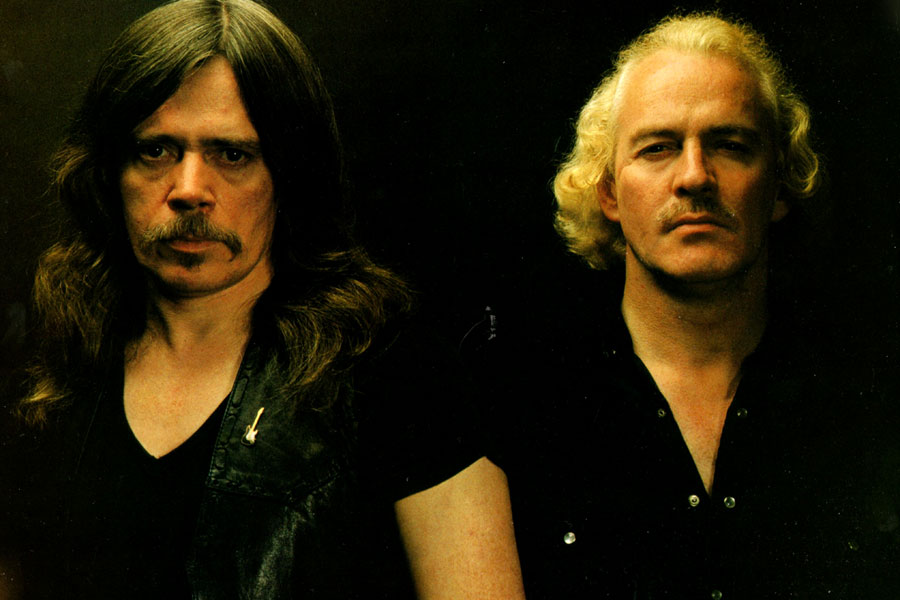
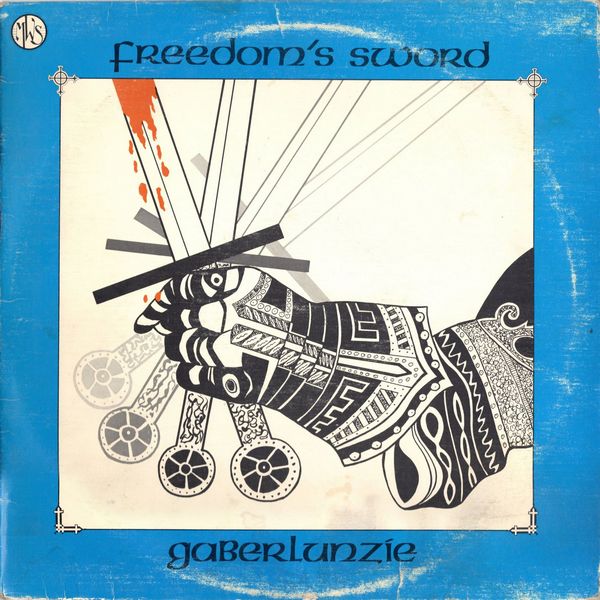 |
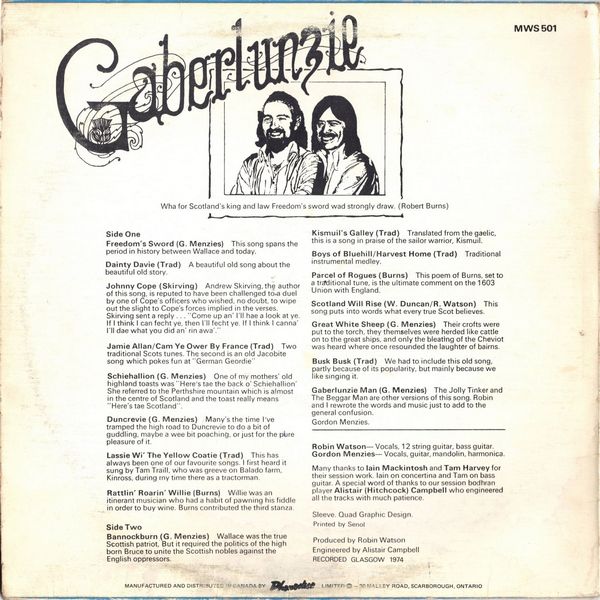
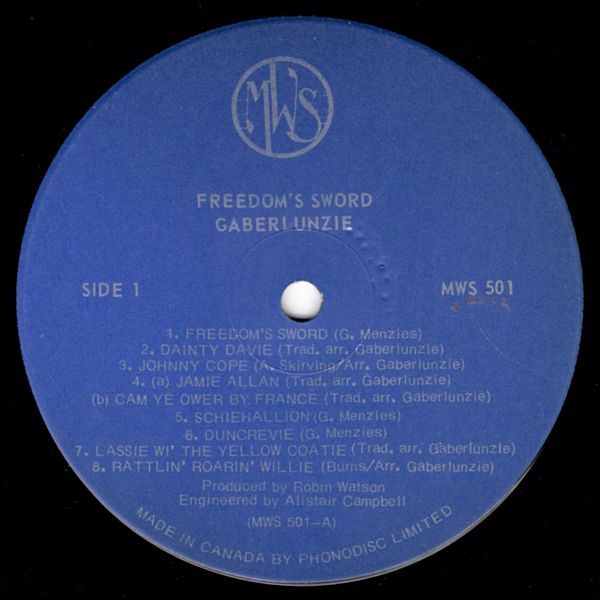
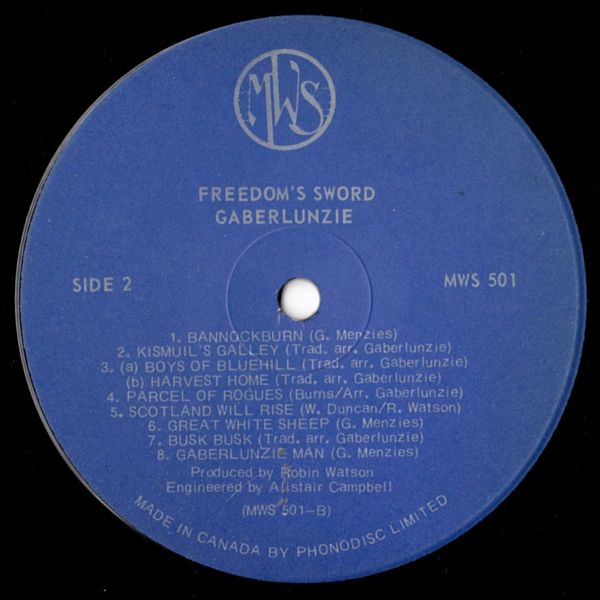 |
Sleeve Notes
Wha for Scotland's king and law
Freedom's Sword wad strongly draw
(Robert Burns)
Freedom's Sword — This song spans the period in history between Wallace and today.
Dainty Davie — A beautiful old song about the beautiful old story.
Johnny Cope — Andrew Skirving, the author of this song, is reputed to have been challenged to a duel by one of Cope's officers who wished, no doubt, to wipe out the slight to Cope's forces implied in the verses. Skirving sent a reply … "Come up an' I'll hae a look at ye. If I think I can fecht ye, then I'll fecht ye. If I think I canna' I'll dae what you did an' rin awa'."
Jamie Allan & Cam Ye Ower By France — Two traditional Scots tunes. The second is an old Jacobite song which pokes fun at "German Geordie"
Schiehallion — One of my mothers' old highland toasts was "Here's tae the back o' Schiehallion" She referred to the Perthshire mountain which is almost in the centre of Scotland and the toast really means "Here's tae Scotland".
Duncrevie — Many's the time I've tramped the high road to Duncrevie to do a bit of guddling, maybe a wee bit poaching, or just for the pure pleasure of it.
Lassie Wi' The Yellow Coatie — This has always been one of our favourite songs. I first heard it sung by Tam Traill, who was greeve on Balado farm, Kinross, during my time there as a tractorman.
Rattlin' Roarin' Willie — Willie Was an itinerant musician who had a habit of pawning his fiddle in order to buy wine. Burns contributed the third stanza.
Bannockburn — Wallace was the true Scottish patriot, But it required the politics of the high born Bruce to unite the Scottish nobles against the English oppressors.
Kismuil's Galley — Translated from the gaelic, this is a song in praise of the sailor warrior, Kismuil.
Boys of Bluehill & Harvest Home — Traditional instrumental medley.
Parcel of Rogues — This poem of Burns, set to a traditional tune, is the ultimate comment on the 1603 Union with England.
Scotland Will Rise — This song puts into words what every true Scot believes.
Great White Sheep — Their crofts were put to the torch, they themselves were herded like cattle on to the great ships, and only the bleating of the Cheviot was heard where once resounded the laughter of bairns.
Busk Busk — We had to include this old song, partly because of its popularity, but mainly because we like singing it.
Gaberlunzie Man — The Jolly Tinker and The Beggar Man are other versions of this song. Robin and I rewrote the words and music just to add to the general confusion.
Many thanks to Iain Mackintosh and Tam Harvey for their session work. Iain on concertina and Tam on bass guitar. A special word of thanks to our session bodhrán player Alistair (Hitchcock) Campbell who engineered all the tracks with much patience.